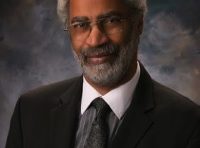Civility Column: The Dangers of Niceness
- Share
- Tweet
- Pin
- Share
At first glance, one would think that being nice is an irrefutable tenet of civil behavior. After all, civility calls us to treat others with respect, courtesy, politeness and consideration. Well, think again!
Thinking again is what I’ve been doing as I try to understand how the contemporary concept of civility has evolved into two contrasting attitudes.
One attitude is that we just need more civility in order to solve our interpersonal and political divides. The other attitude diminishes the virtues of civility, claiming that they can operate like a trap.
At the very real risk of being accused of being uncivil (not “being nice”), people are being suckered into conformity in order to keep the peace, so we don’t speak up when we should. Striving to be accepted as part of “polite” society can act as a form of suppression, particularly silencing people who are already suppressed. Showing respect – as in “respect for authority,” as opposed to respect for all human beings – helps to keep the privileged in the seat of privilege.
In short, the “dangers of niceness” – conformity, suppression, privilege – undermine the very definition of civility: claiming and caring for one’s own needs and beliefs without degrading those of someone else in the process.
The civility of manners or etiquette is just one component of the larger practice of civility, which runs much deeper. It’s about listening, disagreeing without being disrespectful and moving beyond one’s own preconceptions. It’s about the hard work of staying present with those with whom we have fierce and deep differences. It’s about a commitment to behaving in ways that strengthen our shared community.
I believe that the practice of civility is not the cure-all for what ails us interpersonally or as a nation – nor is it just hypocrisy or a smokescreen for the dangers of niceness. There are always multiple interpretations about what civil discourse and behavior are and what they are not. There are always those who treat civility like a political football, playing the blame game, splitting instead of unifying. We need to be mindful that the practice of civility is a tool to enhance human relationships, not a weapon to destroy them.
Susan McAninch is a retired clinical social worker and psychotherapist.

